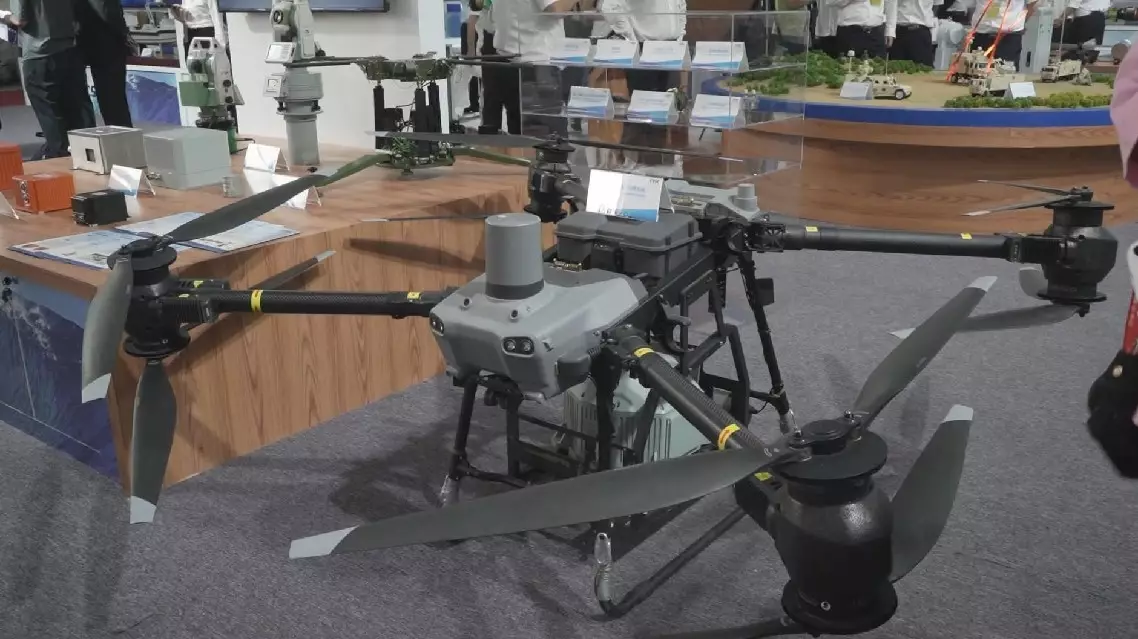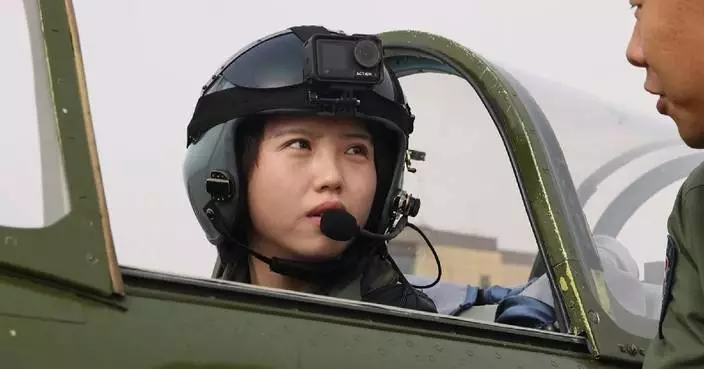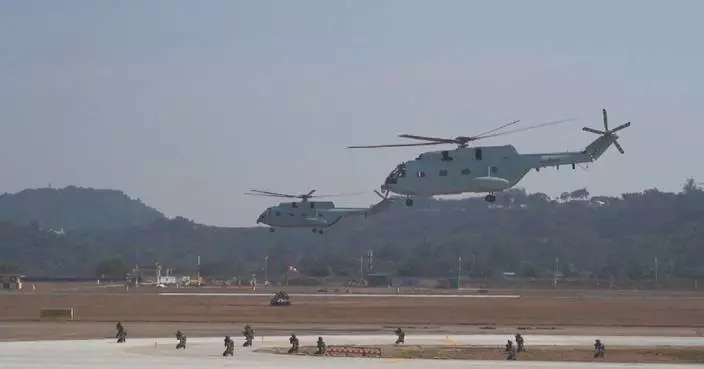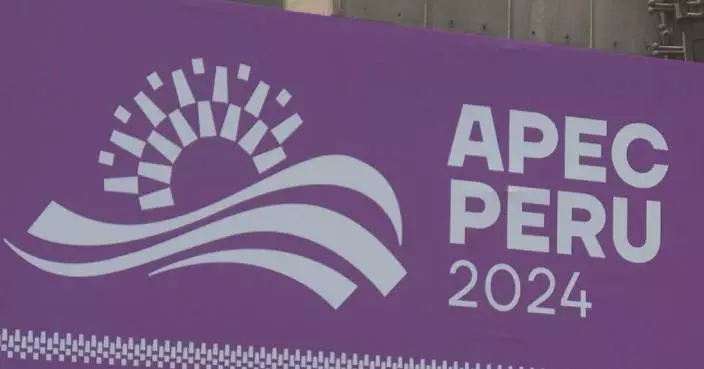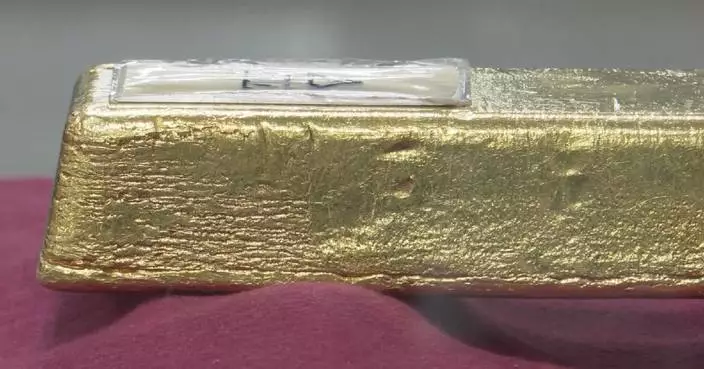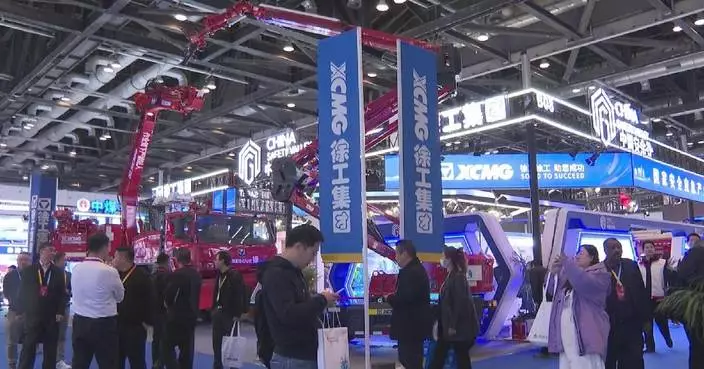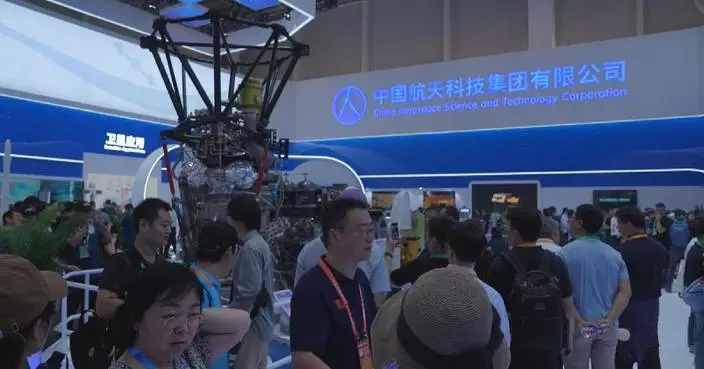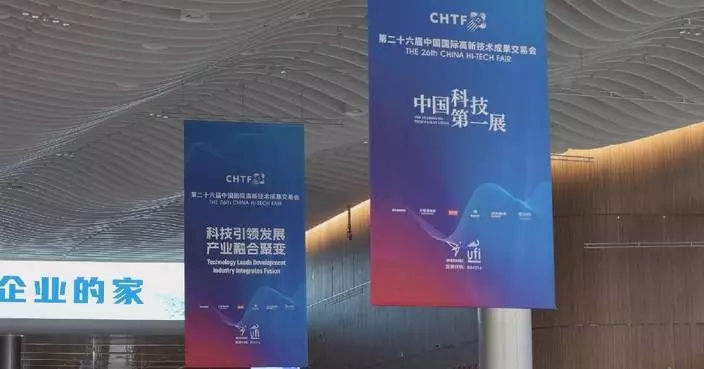A signed article by Chinese President Xi Jinping titled "China-Peru Friendship: Setting Sail Toward an Even Brighter Future" was published Thursday in Peruvian media outlet El Peruano.
Xi is en route to Peru for the 31st APEC Economic Leaders' Meeting in Lima and a state visit to the Latin American country.
The following is an English version of the full text of the article:
China-Peru Friendship: Setting Sail Toward an Even Brighter Future
Xi Jinping President of the People's Republic of China
Early summer in the Southern Hemisphere is a season brimming with vitality and hope. At the invitation of President Dina Boluarte, I will soon pay a state visit to the Republic of Peru and attend the 31st APEC Economic Leaders' Meeting.
This is my second visit to Peru, a "neighbor" of China across the Pacific Ocean, since I took office as President of the People's Republic of China. Peru is home to ancient civilizations such as Caral, Chavín, Chimú, and Inca. Peruvians endearingly refer to the Chinese people as paisano. Peru's Congress has recently declared every February 1 as the Peru-China Fraternity Day. Chinese restaurants in Peru are called chifa, which is similar to the Chinese word chifan, meaning dining. Every time I came here, I was overwhelmed by the friendly sentiments of the Peruvian people toward the Chinese people.
This bond of friendship and affection is rooted in the wisdom of our ancient civilizations. The Chinese civilization is the only one in the world that has continued uninterrupted for more than 5,000 years. The maritime civilization represented by Caral and the continental civilization represented by Inca are a testament to the time-honored history, profound richness, and tremendous diversity of the Peruvian civilization. It is widely believed in the archeology communities of China and other countries that the Chinese civilization and the civilizations of the Americas were in fact created by descendants of the same ancestors at different periods and different locations. Through the wisdom of our civilizations, our minds find common ground and our hearts resonate. The Chinese people always regard "sincerity as a fundamental principle" and "benevolence as an essential virtue." The Incas believe in the rules of "Do not steal, do not lie, and do not be lazy." The Peruvian thinker José Carlos Mariátegui once said, "Spiritually and materially, China is closer to us than Europe. The psychology of our people is more Asian than Western." This is the "code of civilization" that explains the inseparable bond between immigrants of Chinese origin and the local people, forged through seamless integration and familial ties over the past 175 years. Recently, a documentary titled From the Great Wall to Machu Picchu will premiere in Peru under the auspices of the broadcasting and television authorities of the two countries. Also to be screened in Peru are a number of popular Chinese film and television productions including 3 Body Problem. I believe that they will help our Peruvian friends know more about China.
This bond of friendship and affection is a legacy that shines brightly across the ages through our respective histories. Many told me that Chinese and Peruvian peoples would feel an instant warmth upon their first encounters and would have a déjà vu when appreciating each other's ancient artifacts. For example, the gold masks of the Incas unearthed in Peru are strikingly similar to the gold masks uncovered at an archeological site at Sanxingdui in China's Sichuan Province. The Intihuatana stone on an altar in the ancient city of Machu Picchu, which the Incas used to mark the seasons and compose calendars according to changes of solar shadows, was in fact based on the same principle that inspired the creation of sundials in ancient China. The people of the ancient Shu kingdom in what is now China's Sichuan Province expressed reverence for the sun and the sun god through the image of a soaring sunbird. The Inca civilization expressed its sun worship the same way. The longing for brightness was valued in both of our cultures. Last year, the "Journey Through Civilization" exhibition arrived in Peru as part of its world tour. "The Inca Sky Road South American Continental Andean Culture Exhibition" and the "Inca and Their Tawantinsuyu: The Land of Four Quarters" were on display in China. These events are an immediate hit among our peoples. An exhibition of "Great Ancient Civilizations: China and the Tawantinsuyo in Peru" is now jointly held by the two countries in Peru. You are most welcome to visit the exhibition to see the remarkable commonality and connections between our splendid civilizations.
The bond of our friendship and affection has become stronger through China-Peru win-win cooperation. Peru was one of the first Latin American countries to establish diplomatic relations with the People's Republic of China. For over 50 years, our bilateral relations have been progressing steadily. Especially since the elevation of our relationship to a comprehensive strategic partnership in 2013, our ties have grown stronger and our results-oriented cooperation have been fruitful, bringing tangible benefits to our peoples. In fighting the COVID-19 pandemic, China sent a medical expert team to Peru. We also provided vaccines and other medical supplies to the best of our ability. We have proven through concrete actions that China is a trustworthy friend that Peru can rely on in crucial moments. Peru is the first Latin American country to sign a package FTA with China. It is also among the first in Latin America to participate in cooperation under the Belt and Road Initiative. China has been Peru's largest trading partner and largest export market for 10 consecutive years. Last year, Peru's exports to China accounted for 36 percent of its total exports. Chinese businesses have an investment stock of about 30 billion U.S. dollars in Peru. The Las Bambas copper mine, a project with investment from Chinese enterprises, contributes to about 1 percent of Peru's GDP, creating tens of thousands of job opportunities. The Saúl Garrido Rosillo Hospital in Tumbes, a project undertaken by a Chinese enterprise, will serve over 100,000 local residents. The water project in the three districts of Lima will enable more than 400,000 people to access clean water and sanitation services.
As an ancient Chinese saying goes, "Bringing benefit to the people is the fundamental principle of governance." There is also a Peruvian saying, "The voice of the people is the voice of God." Both China and Peru are striving for a better life for the people. We must build on our traditional friendship to expand and deepen mutually beneficial cooperation across the board, and make it more responsive to the requirements of the new era. Last July, the 20th Central Committee of the Communist Party of China held its third plenary session, endorsing a master plan for further deepening reform comprehensively to advance Chinese modernization. This means new opportunities for Peru and the world, and promises a bright future for China-Peru mutually beneficial cooperation.
During my upcoming visit, President Boluarte and I will attend via video the inauguration ceremony of Chancay Port. This is not only an important project under Belt and Road cooperation, but also the first smart port in South America. The first phase of the project, when completed, will reduce the sea shipping time from Peru to China to 23 days, thus cutting logistics costs by at least 20 percent. It is expected to generate 4.5 billion dollars in yearly revenues for Peru and create over 8,000 direct jobs. The completion of Chancay Port will enable Peru to put in place a multi-dimensional, diverse and efficient network of connectivity spanning from coast to inland, from Peru to Latin America and further on to the Caribbean. It will also help build an Inca Trail of the New Era with Chancay Port as its starting point, thus boosting the overall development and integration of the region. The port's development plan also includes establishing animal rescue services to fulfill its social responsibility for the rescue and protection of penguins, seals and birds and to improve the environment of wetlands, beaches, and habitats. It is thus very important that we work together to ensure the success of Chancay Port from construction through operation, so that the route from Chancay to Shanghai will lead China, Peru and Latin America to common development and prosperity. China is also ready to launch in Peru more "small and beautiful" livelihood cooperation projects, open more Luban Workshops and centers for Chinese language and professional skills, and strengthen cooperation on vocational education. We will encourage Chinese companies to create more jobs and fulfill their social responsibilities in Peru, making our paisano friendship more tangible and beneficial.
Our two countries should stand up to the responsibility to our times concerning mutual learning among civilizations. We should strengthen exchange and cooperation in culture, arts, education, scientific research, tourism, youth, cultural heritage protection, archeology and other areas. We should take more measures to facilitate personnel exchanges to garner greater public support for our relations. We should enhance cooperation under the framework of the Ancient Civilization Forum. We should explore the establishment of a global network for dialogue and cooperation among civilizations, and support their exchanges and mutual learning. We should ensure that civilizations, diverse in many ways,complement each other and shine brightly together, just like the the multicolored pools of China's Jiuzhaigou and Peru's Salt Terraces of Maras, thus making greater contributions to the progress of human civilization.
This will be the third time that APEC economic leaders meet in Peru after the country successfully hosted the meetings of 2008 and 2016. The themes of the three meetings, from "A New Commitment to Asia-Pacific Development" to "Quality Growth and Human Development," and on to this year's "Empower, Include, Grow," attest to Peru's firm resolve to promote an open Asia-Pacific economy and world economic growth. They also represent a strong "Lima Voice" for openness, inclusiveness, and win-win cooperation. China firmly supports Peru's presidency of APEC and will work closely with Peru to ensure a successful and productive meeting, enhance Asia-Pacific cooperation with a "Lima Imprint," and make new contributions to building an Asia-Pacific community with a shared future.
The world is undergoing faster transformation unseen in a century. Humanity has again come to a crossroads in history. To fully appreciate the grandeur of the Nazca Lines, we must view them from a height because at the ground level, their true splendor remains hidden from view. To quote a Chinese poem to the same effect, "Fear not the clouds that obscure your view, for you stand atop the highest summit." China is ready to join Peru in embracing a broader vision and grasping the underlying trends of our times from a long historical perspective to champion true multilateralism, promote an equal and orderly multipolar world and a universally beneficial and inclusive economic globalization, jointly implement the Global Development Initiative, the Global Security Initiative and the Global Civilization Initiative, and build together a community with a shared future for mankind.
As our friends in Latin America often say, without courage, one will never conquer the mountains or cross the sea. On a new historical juncture, China is ready to work hand in hand with our Peruvian friends with one heart and with the same goal and steer the ship of our friendship toward an even brighter future.
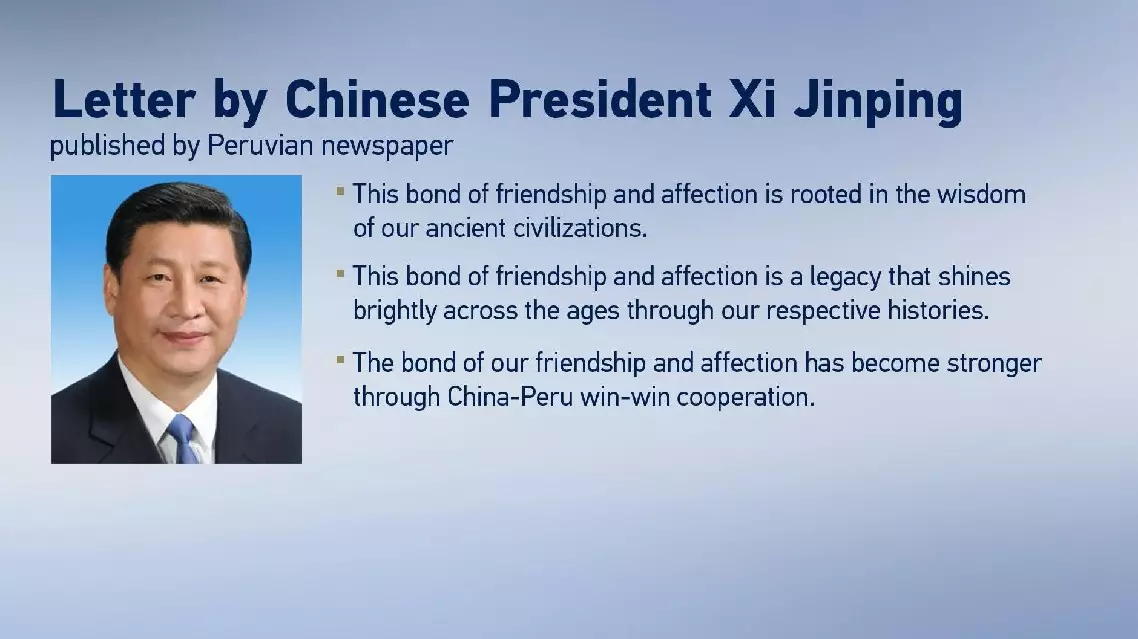
Xi's signed article published in Peruvian media


